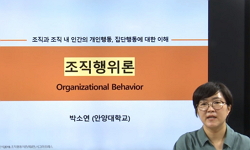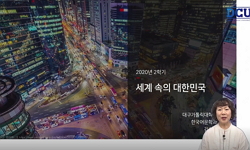가부장적 리더십이 근로자의 직무 태도 및 성과에 기여한다는 연구는 오랫동안 축적되었다. 하지만 기존의 가 부장적 리더십의 국내외 연구에서는 가부장적 리더십을 단일 차원으로 인식하...
http://chineseinput.net/에서 pinyin(병음)방식으로 중국어를 변환할 수 있습니다.
변환된 중국어를 복사하여 사용하시면 됩니다.
- 中文 을 입력하시려면 zhongwen을 입력하시고 space를누르시면됩니다.
- 北京 을 입력하시려면 beijing을 입력하시고 space를 누르시면 됩니다.

가부장적 리더십의 온정주의 차원과 권위주의 차원이 정서적 조직몰입과 혁신 행동에 미치는 영향: 한국과 미국의 근로자를 대상으로* = The Effect of Benevolent and Authoritarian Paternalistic Leadership on Affective Organizational Commitment and Innovation Behavior: A Comparison between Korean and US Employees
한글로보기https://www.riss.kr/link?id=A108245951
- 저자
- 발행기관
- 학술지명
- 권호사항
-
발행연도
2022
-
작성언어
Korean
- 주제어
-
등재정보
KCI등재
-
자료형태
학술저널
- 발행기관 URL
-
수록면
69-100(32쪽)
-
KCI 피인용횟수
0
- 제공처
-
0
상세조회 -
0
다운로드
부가정보
국문 초록 (Abstract)
가부장적 리더십이 근로자의 직무 태도 및 성과에 기여한다는 연구는 오랫동안 축적되었다. 하지만 기존의 가 부장적 리더십의 국내외 연구에서는 가부장적 리더십을 단일 차원으로 인식하고 있고, 동양의 유교 사상이나 전 통적으로 강한 가족문화의 영향으로 발전되어왔기 때문에 가부장적 리더십은 아시아, 중남미, 중동 국가 등의 특 정 국가에서만 유효한 리더십이라고 주장하였다. 하지만 본 연구에서는 먼저 사회교환이론을 바탕으로 가부장적 리더십의 하위 차원인 온정주의와 권위주의 차원이 정서적 조직몰입과 혁신 행동에 어떻게 영향을 미치는지 살펴 보고자 한다. 더 나아가, 비교문화관점에서 가부장적 리더십의 효과성이 동서양을 대표하는 한국과 미국에서 어 떠한 차이가 있는지 살펴보고자 한다. 본 연구에서는 388명의 한국과 미국 근로자를 대상으로 진행되었으며, 온 정주의 차원의 가부장적 리더십과 권위주의 차원의 가부장적 리더십은 각각 정서적 조직몰입에 정(+)과 부(-)의 영향을 준다는 것을 확인했다. 이어 정서적 조직몰입도 혁신 행동에 정(+)의 영향을 준다는 것을 확인했다. 한 편, 온정주의 가부장적 리더십과 정서적 조직몰입의 정(+)의 관계는 한국 근로자들에게 더 강한 긍정 효과를 나 타냈지만, 권위주의 가부장적 리더십과 정서적 조직몰입의 부(-)의 관계는 한국과 미국 근로자 사이에서 유의미 한 차이를 발견하지 못했다.
참고문헌 (Reference)
1 조영삼 ; 신만수 ; 이준엽, "중국 근로자들에 대한 가부장적 리더십의 효과성: 집단주의와 LMX의 조절역할" 한국국제경영관리학회 24 (24): 15-28, 2020
2 김문경 ; 백기복, "상사의 임파워링 리더십이 조직구성원의 혁신행동에 미치는 영향: 생산적 조직에너지의 매개효과를 중심으로" 한국무역연구원 16 (16): 717-735, 2020
3 박원우 ; 김미숙 ; 정상명 ; 허규만, "동일방법편의(Common Method Bias)의 원인과 해결방안" 한국인사조직학회 15 (15): 89-133, 2007
4 Avolio, B. J., "Unlocking the mask : A Look at the Process by which Authentic Leaders Impact Follower Attitudes and Behaviors" 15 (15): 801-823, 2004
5 Kanter, R. M., "Three Tiers for Innovation Research" 15 (15): 509-523, 1988
6 Erben, G. S., "The Relationship between Paternalistic Leadership and Organizational Commitment : Investigating the Role of Climate regarding Ethics" 82 (82): 955-968, 2008
7 Gouldner, A. W., "The Norm of Reciprocity : A Preliminary Statement" 25 (25): 161-178, 1960
8 Chai, D. S., "The Multi-level Effects of Developmental Opportunities, Pay Equity, and Paternalistic Leadership on Organizational Commitment" 44 (44): 405-424, 2020
9 홍가혜 ; 하루오 호라구치 ; 신만수, "The Mediating Role of Trust in the Relationship between Transformational and Transactional Leadership and Affective Commitment: The Comparative Study of Korean and Filipino Employees" 한국국제경영관리학회 22 (22): 61-90, 2018
10 Wu, M., "The Influencing Mechanisms of Paternalistic Leadership in Mainland China" 18 (18): 631-648, 2012
1 조영삼 ; 신만수 ; 이준엽, "중국 근로자들에 대한 가부장적 리더십의 효과성: 집단주의와 LMX의 조절역할" 한국국제경영관리학회 24 (24): 15-28, 2020
2 김문경 ; 백기복, "상사의 임파워링 리더십이 조직구성원의 혁신행동에 미치는 영향: 생산적 조직에너지의 매개효과를 중심으로" 한국무역연구원 16 (16): 717-735, 2020
3 박원우 ; 김미숙 ; 정상명 ; 허규만, "동일방법편의(Common Method Bias)의 원인과 해결방안" 한국인사조직학회 15 (15): 89-133, 2007
4 Avolio, B. J., "Unlocking the mask : A Look at the Process by which Authentic Leaders Impact Follower Attitudes and Behaviors" 15 (15): 801-823, 2004
5 Kanter, R. M., "Three Tiers for Innovation Research" 15 (15): 509-523, 1988
6 Erben, G. S., "The Relationship between Paternalistic Leadership and Organizational Commitment : Investigating the Role of Climate regarding Ethics" 82 (82): 955-968, 2008
7 Gouldner, A. W., "The Norm of Reciprocity : A Preliminary Statement" 25 (25): 161-178, 1960
8 Chai, D. S., "The Multi-level Effects of Developmental Opportunities, Pay Equity, and Paternalistic Leadership on Organizational Commitment" 44 (44): 405-424, 2020
9 홍가혜 ; 하루오 호라구치 ; 신만수, "The Mediating Role of Trust in the Relationship between Transformational and Transactional Leadership and Affective Commitment: The Comparative Study of Korean and Filipino Employees" 한국국제경영관리학회 22 (22): 61-90, 2018
10 Wu, M., "The Influencing Mechanisms of Paternalistic Leadership in Mainland China" 18 (18): 631-648, 2012
11 Martinez-Alier, J., "The Environmentalism of the Poor: a Study of Ecological Conflicts and Valuation" Edward Elgar Publishing 2003
12 Hong, G., "The Effect of Leadership Styles, Rank, and Seniority on Affective Organizational Commitment : A Comparative Study of US and Korean Employees" 23 (23): 340-362, 2016
13 Paine, J. B., "The Cultural Matrix of Organizational Citizenship Behavior : Some Preliminary Conceptual and Empirical Observations" 10 (10): 45-59, 2000
14 Chen, Y., "Supervisor–subordinate Guanxi : Developing a Three-dimensional Model and Scale" 5 (5): 375-399, 2009
15 Fornell, C., "Structural Equation Models with Unobservable Variables and Measurement Error" 1981
16 Cropanzano, R., "Social Exchange Theory : An Interdisciplinary Review" 31 (31): 874-900, 2005
17 Mansur, J., "Shades of Paternalistic Leadership across Cultures" 52 (52): 702-713, 2017
18 Podsakoff, P. M., "Self-reports in Organizational Research : Problems and Prospects" 12 (12): 531-544, 1986
19 Homburg, C., "Personal Characteristics as Moderators of the Relationship between Customer Satisfaction and Loyalty—an Empirical Analysis" 18 (18): 43-66, 2001
20 Bos-Nehles, Anna C., "Perceptions of HR Practices and Innovative Work Behavior : the Moderating Effect of an Innovative Climate" 30 (30): 2661-2683, 2019
21 Cheng, B. S., "Paternalistic Leadership and Subordinate Responses : Establishing a Leadership Model in Chinese Organizations" 7 (7): 89-117, 2004
22 Zhang, Y., "Paternalistic Leadership and Employee Voice in China : A Dual Process Model" 26 (26): 25-36, 2015
23 Cheng, B. S., "Paternalistic Leadership : Model and Evidence" Hwa Tai Publishing 2006
24 Allen, N. J., "Organizational Socialization Tactics : A Longitudinal Analysis of Links to Newcomers' Commitment and Role Orientation" 33 (33): 847-858, 1990
25 Morrison, Elizabeth Wolef, "Organizational Silence : A Barrier to Change and Development in a Pluralistic World" 25 (25): 706-725, 2000
26 Wasti, S. A., "Organizational Commitment, Turnover Intentions and the Influence of Cultural Values" 76 (76): 303-321, 2003
27 Hair, J. F., "Multivariate Data Analysis 6th Edition, Pearson Prentice Hall. New Jersey. Humans: Critique and Reformulation" 87 (87): 49-74, 2006
28 Farh, J. L., "Management and Organizations in the Chinese Context" Palgrave Macmillan 84-127, 2000
29 Emerson, T. I., "Legal Foundations of the Right to Know" 1 : 1976
30 Pellegrini, E. K., "Leader–member Exchange(LMX), Paternalism, and Delegation in the Turkish Business Culture : An Empirical Investigation" 37 (37): 264-279, 2006
31 Wendt, H., "Leadership and Team Cohesiveness across Cultures" 20 (20): 358-370, 2009
32 Farh, J. L., "Leadership and Management in China: Philosophies, Theories, and Practices" Cambridge University Press 171-205, 2008
33 Mokhber, M., "Leadership and Innovation : The Moderator Role of Organization Support for Innovative Behaviors" 24 (24): 108-128, 2018
34 Kirkman, B. L., "Individual Power Distance Orientation and Follower Reactions to Transformational Leaders : A Cross-level, Cross-cultural Examination" 52 (52): 744-764, 2009
35 Aycan, Z., "Indigenous and cultural psychology" Springer 445-466, 2006
36 Lin, W., "How is Benevolent Leadership Linked to Employee Creativity? The Mediating Role of Leader–member Exchange and the Moderating Role of Power Distance Orientation" 152 (152): 1099-1115, 2018
37 Schuh, S. C., "For the Good or the Bad? Interactive Effects of Transformational Leadership with Moral and Authoritarian Leadership Behaviors" 116 (116): 629-640, 2013
38 Lavelle, J. J., "Fairness in Human Resource Management, Social Exchange Relationships, and Citizenship Behavior : Testing Linkages of the Target Similarity Model among Nurses in the United States" 20 (20): 2419-2434, 2009
39 Blau, P. M., "Exchange and Power in Social Life" John Wiley &Sons, Inc 1964
40 Sarooghi, H., "Examining the Relationship between Creativity and Innovation : A Meta-analysis of Organizational, Cultural, and Environmental Factors" 30 (30): 714-731, 2015
41 Rawat, P. S., "Effect of Paternalistic Leadership Style on Subordinate’s Trust : An Indian Study" 8 (8): 264-277, 2016
42 Bin Saeed, B., "Does Transformational Leadership Foster Innovative Work Behavior? The Roles of Psychological Empowerment, Intrinsic Motivation, and Creative Process Engagement" 32 (32): 254-281, 2019
43 Tian, Qing, "Does Paternalistic Leadership Promote Innovative Behavior? The Interaction between Authoritarianism and Benevolence" 47 (47): 235-246, 2017
44 Gu, Q., "Does Moral Leadership Enhance Employee Creativity? Employee Identification with Leader and Leader–member Exchange(LMX)in the Chinese Context" 126 (126): 513-529, 2015
45 Scott, S. G., "Determinants of Innovative behavior : A Path Model of Individual Innovation in the Workplace" 37 (37): 580-607, 1994
46 House, R. J., "Culture, Leadership, and Organizations: The GLOBE study of 62 societies" Sage publications 2004
47 Hofstede, G., "Culture's Consequences: Comparing Values, Behaviors, Institutions and Organizations across Nations" Sage Publications 2001
48 Pellegrini, E. K., "Cross-cultural Generalizability of Paternalistic Leadership : An Expansion of Leader-member Exchange Theory" 35 (35): 391-420, 2010
49 Aycan, Z., "Convergence and Divergence of Paternalistic Leadership : A Cross-cultural Investigation of Prototypes" 44 (44): 962-969, 2013
50 Tsui, A. S., "Contributing to Global Management Knowledge : A Case for High Quality Indigenous Research" 21 (21): 491-513, 2004
51 Chen, Y., "Collective Efficacy : Linking Paternalistic Leadership to Organizational Commitment" 159 (159): 587-603, 2019
52 Nie, D., "Chinese Immigrants’ Occupational Well-being in Finland : The Role of Paternalistic Leadership" 39 (39): 340-352, 2018
53 Wang, X., "Building Innovation Capability : The Role of Top Management Innovativeness and Relative-exploration Orientation" 76 : 127-135, 2017
54 Cohen, P., "Applied Multiple Regression/Correlation Analysis for the Behavioral Sciences" Psychology press 2014
55 Chen, X. P., "Affective Trust in Chinese Leaders : Linking Paternalistic Leadership to Employee Performance" 40 (40): 796-819, 2014
56 Harman, D., "A single Factor Test of Common Method Variance" 35 : 359-378, 1967
57 Meyer, J. P., "A Three-component Conceptualization of Organizational Commitment" 1 (1): 61-89, 1991
58 Bedi, A., "A Meta-Analytic Review of Paternalistic Leadership" 69 (69): 960-1008, 2020
동일학술지(권/호) 다른 논문
-
사회정체성 이론 관점에 본 개도국 시장에서의 외국 브랜드의 현지성 지각 효과: 필리핀 소비자 대상으로
- 한국국제경영학회
- 남효진
- 2022
- KCI등재
-
기업의 해외진출에 따른 지역별 무역기술장벽 특성 비교: 수산업을 중심으로
- 한국국제경영학회
- 박명현
- 2022
- KCI등재
-
주재원의 심리적 계약 내용과 계약 위반 사건의 원인에 대한 질적연구*
- 한국국제경영학회
- 이해경
- 2022
- KCI등재
분석정보
인용정보 인용지수 설명보기
학술지 이력
| 연월일 | 이력구분 | 이력상세 | 등재구분 |
|---|---|---|---|
| 2026 | 평가예정 | 재인증평가 신청대상 (재인증) | |
| 2020-01-01 | 평가 | 등재학술지 유지 (재인증) |  |
| 2017-01-01 | 평가 | 등재학술지 유지 (계속평가) |  |
| 2013-01-01 | 평가 | 등재학술지 유지 (등재유지) |  |
| 2010-01-01 | 평가 | 등재학술지 유지 (등재유지) |  |
| 2008-01-01 | 평가 | 등재학술지 유지 (등재유지) |  |
| 2006-07-21 | 학회명변경 | 영문명 : 미등록 -> Korean Academy of International Business |  |
| 2006-01-01 | 평가 | 등재학술지 유지 (등재유지) |  |
| 2004-01-01 | 평가 | 등재학술지 유지 (등재유지) |  |
| 2001-07-01 | 평가 | 등재학술지 선정 (등재후보2차) |  |
| 1999-01-01 | 평가 | 등재후보학술지 선정 (신규평가) |  |
학술지 인용정보
| 기준연도 | WOS-KCI 통합IF(2년) | KCIF(2년) | KCIF(3년) |
|---|---|---|---|
| 2016 | 2.45 | 2.45 | 2.15 |
| KCIF(4년) | KCIF(5년) | 중심성지수(3년) | 즉시성지수 |
| 2.25 | 2.33 | 4.114 | 0.56 |




 KCI
KCI 코리아스칼라
코리아스칼라






